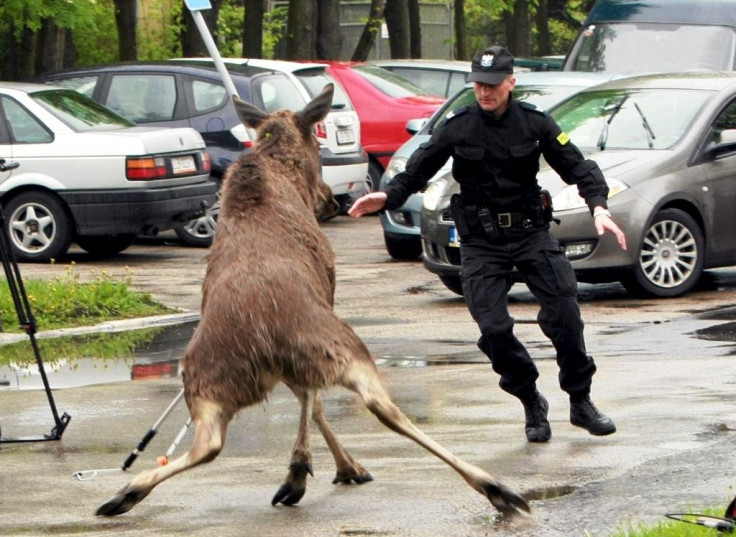Moose Licking Salt Off Cars Prompts Warning In Canada’s Alberta Province

Authorities in western Canada’s Alberta province have issued a warning to people visiting Peter Lougheed Provincial Park to watch out for moose licking salt off their vehicles.
“Please be aware of a moose warning in the Chester Lake and Burstall Pass parking lots and the trails near the lots,” according to the warning issued by Alberta Parks Monday. “Moose approaching vehicles in the parking lots to lick salt from the sides of the vehicle. Moose on trails near the parking lots.”
The officials advised that the recommended “moose viewing distance” is about 100 feet and such animals should be warded off by using car horns or using a remote door alarm. The alert also advised people not to push the salt-lickers away while on foot. An average adult moose can weigh over 1,000 pounds. The animals can become aggressive and charge people or vehicles if they feel threatened.
“All animals have a natural need for salt because it is an important component in their blood,” Dr. Doug Whiteside at the Calgary Zoo told Global News. “In the wild, animals [like moose] will replace that salt through their diets, and if there is not a natural source of salt available they will find an alternate source, like the salt from the roads on the vehicles.”
The Alberta alert will remain in place until further notice. Furthermore, authorities have also asked people to report any "aggressive moose encounters" immediately.
© Copyright IBTimes 2024. All rights reserved.






















